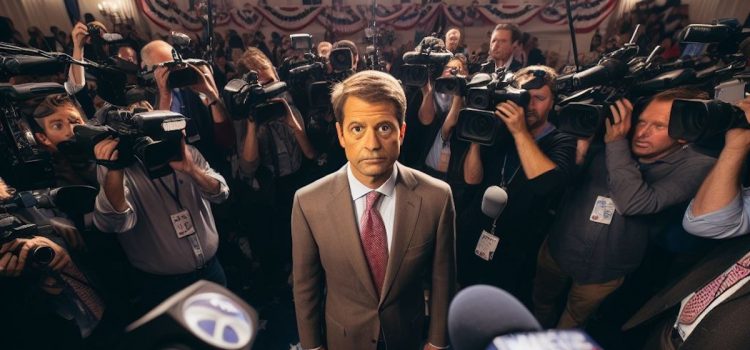
What role does politics play in media? What are the challenges of being a public figure in the political atmosphere?
Even those who aren’t making the big decisions in office face drastic changes. Jen Psaki, the former White House Press Secretary, had to navigate politics in media when speaking on behalf of the executive branch of the United States.
Continue reading for Psaki’s take on the role of the White House Press Secretary, according to the podcast Smartless.
How Jen Psaki Developed Her Communication Skills
Psaki’s adeptness in communication is explored, with potential influence from her family background acknowledged by both Psaki and the hosts. Correcting a common misconception about her origins, Psaki shares that she was actually born in New York City, not Stamford, Connecticut.
Her discussion of her mixed Greek and Irish ancestry and her upbringing, particularly with a mother who was a therapist, offers insight into the development of her communication skills. Additionally, Psaki recounts a charming anecdote of how she met her husband Greg in a political setting, with their romance blossoming from a simple yet significant gesture—the gift of ice cream.
Weathering Politics: The Challenges of a Public Role
Dealing with a public role that’s associated with politics in media, Psaki experienced the transition from a protective bubble to a climate of intensified scrutiny and hostility. She speaks highly of Ron Klain, former White House Chief of Staff, and his critical role during the transition period before the Biden administration.
Bateman inquires about Klain’s influence on the COVID-19 response and his subsequent move to a law firm, reflecting the evolving challenges and responsibilities encountered within the political environment.
Navigating Through Media Sensationalism
The podcast touches upon Psaki’s views on political division and the media’s role in potentially exacerbating public disengagement. Candid in her reflection, Psaki muses over instances where she might have altered previous statements, indicating a commitment to self-critique, such as her initial assessment of the Space Force.
In discussing her television show, Psaki emphasizes her intent to provide in-depth, personal engagement with guests, prioritizing this over merely covering the latest news headlines. She stresses the importance of intensive research to create resonant, meaningful interviews, expressing a strategic approach to guest selection that extends beyond the surface-level appeal of high-profile individuals.
Context
This discussion revolves around Jen Psaki, a political commentator and former White House Press Secretary. Psaki, who served as the spokesperson for the Biden administration from January to December 2021, brings her expertise in communications and her experience within the Democratic Party to shed light on various aspects of political communication. The podcast emphasizes the importance of understanding Psaki’s background and upbringing in comprehending her exceptional communication skills and ability to navigate the complex political landscape.
One of the key themes explored in this podcast is the challenges that come with holding a public role. Psaki reflects on her transition from a protected environment to being subjected to increased scrutiny and hostility as White House Press Secretary. This highlights how individuals in public positions face unique obstacles that can impact their personal lives and mental well-being.
Another significant theme discussed is media sensationalism and its role in exacerbating political division. Psaki shares her views on how media outlets often prioritize headline-grabbing topics over meaningful engagement with guests, contributing to further polarization among audiences.






